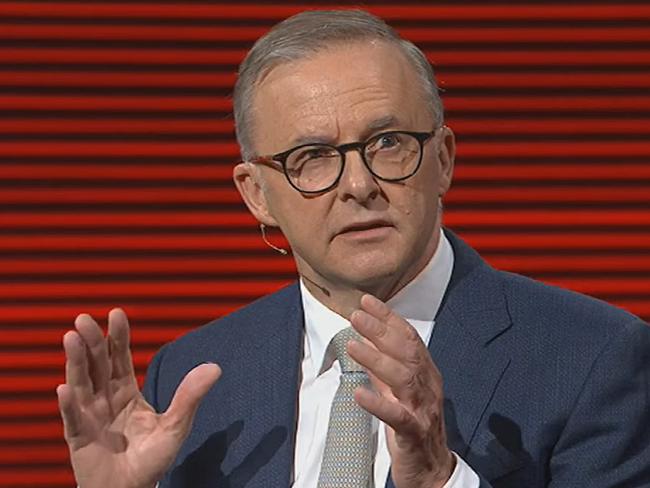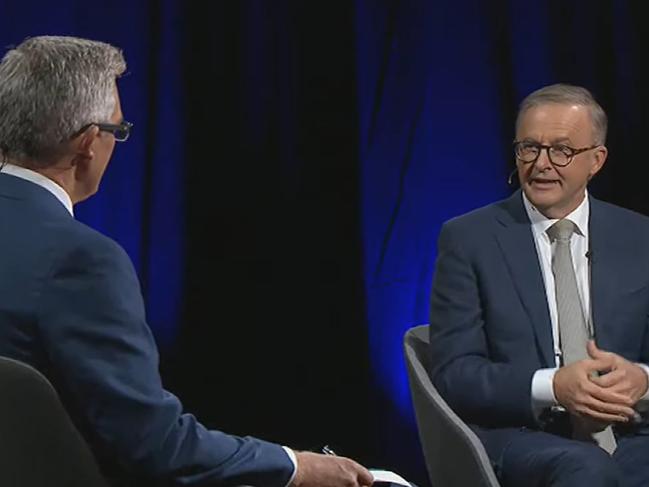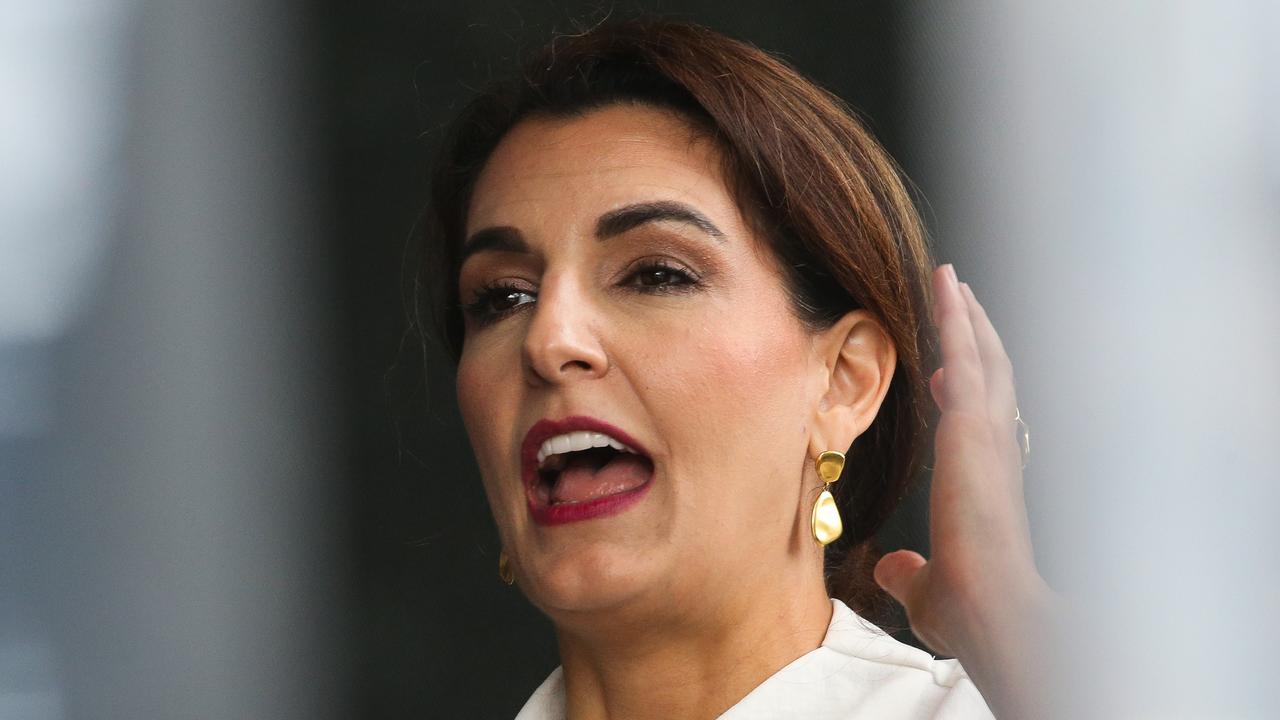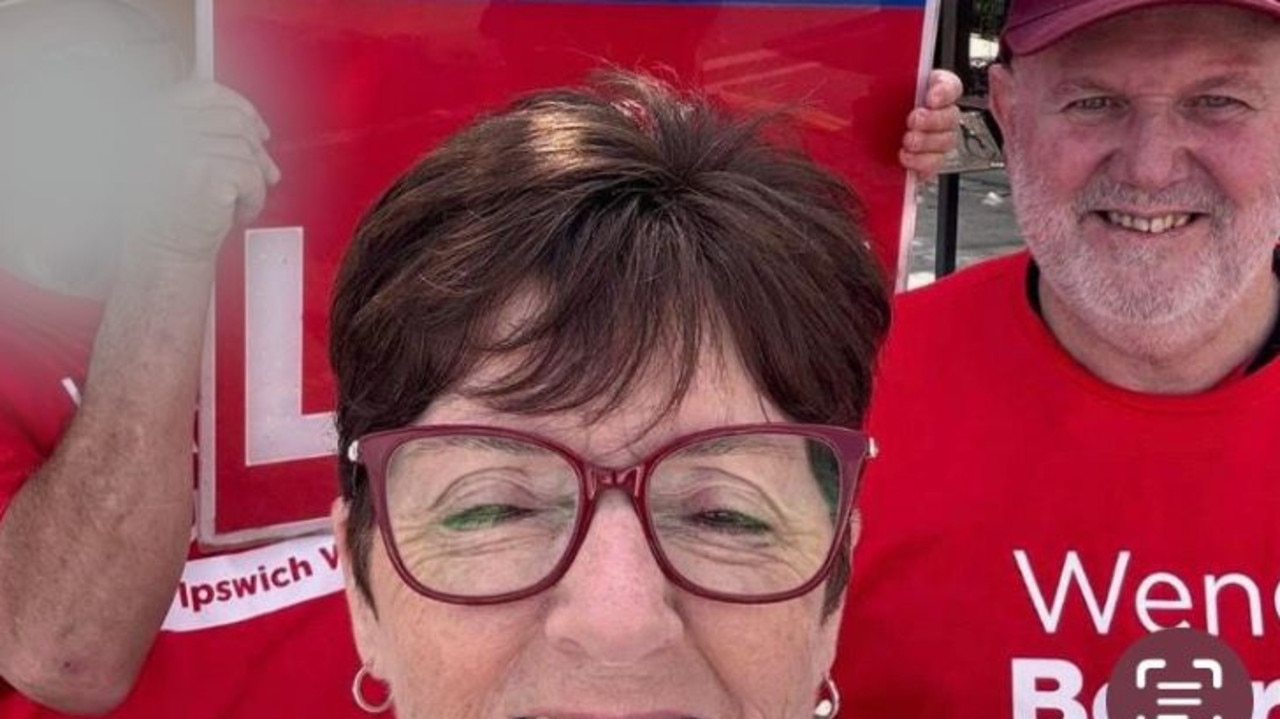Why Anthony Albanese says politics in Australia has changed
Anthony Albanese has blamed several election “gaffes” on the current political discourse which places sound bites over policy.
Federal Election
Don't miss out on the headlines from Federal Election. Followed categories will be added to My News.
Labor leader Anthony Albanese has come out swinging against “gotchas and game-playing” in a wide-ranging interview on ABC’s Q&A on Thursday evening.
He said the political landscape had changed in Australia, paving the way for a rise in the number of independents standing for office.
Labor has been relatively quiet on the emergence of high-profile Independents who are mostly gunning for Liberal-held seats.
Asked whether they indicate a dissatisfaction with the two major parties, Mr Albanese said it represented a change in society.
“I came out of the womb as a believer with three great faiths – the Catholic Church, South Sydney rugby league Football Club and the Australian Labor Party,” he said.
“That historical family base has broken down. Society is far more disparate than it was.”
Mr Albanese said he hoped the election could move away from “gotchas and game-playing” which he believes is alienating public involvement in politics.

Having been grilled the very same day for apparently being unable to name Labor’s six point plan for reforming the NDIS, Mr Albanese instead blamed political discourse for having lost its way.
“The point here isn’t some bureaucratic gotcha game, the point is putting people back at the centre of the NDIS,” he said.
“You get down to sound bites rather than philosophies and values of driving issues forward. I think that is helping to alienate people and divide people into camps.
“I gave a major speech today at the Australian Chamber of Commerce and Industry about productivity, about how you grow the economy. I’m sure it won’t be on the front page of the newspapers tomorrow.”
Mr Albanese faced questions over whether his vision for Australia is bold enough to appeal to younger voters or if the major parties were too similar.
“I guess I‘m wondering what hope there is for those of us who feel as though we’re on the Titanic and the two major political parties in this country are arguing over who gets to rearrange the deckchairs,” an audience member asked.
Mr Albanese compared his party’s more ambitious targets on climate change and plans to introduce a constitutionally enshrined Indigenous voice to parliament as two big differences.
“We have practical plans that are implementable in our first term. The alternative is three more years of drift,” Mr Albanese said.

On Indigenous issues Mr Albanese said he does not intend to change the date of Australia Day from January 26th.
However, Labor has committed to holding a referendum on establishing a constitutionally enshrined Indigenous voice to parliament.
“We’re diminished until we recognise that we live with the oldest continuous civilisation on the planet and that is a great privilege,” he said.
He explained by not changing the date of Australia Day, “the idea there would be that you would recognise history didn’t begin then, it went back at least 65,000 years – but it didn’t end then either”.
“Modern Australia is made up of, with the exception of First Nations people, migrants and descendants of migrants and that might be an idea that might be able to bring people together in a unifying way.”
Wading into the emergence of China as a more “aggressive and forward-leaning” presence, Mr Albanese said it would remain a challenge for whoever is in government.
“We live in an era of strategic competition between the United States and China, including in our region,” he said.
He said that reality warranted increased defence spending of whatever is necessary to defend Australia’s national interests, committing to above 2 per cent of GDP.

Labor’s stance remains the same as the government on issues including Hong Kong, Taiwan, the Uyghurs and the South China Sea, he pointed out.
Mr Albanese stressed the relationship with China needed to be managed to avoid the “catastrophe” of an armed conflict.
“The consequences of military conflict – we‘re seeing what’s happening in Russia and Ukraine. No-one wants that. But we need to recognise the competition is there,” he said.
He added China building a military base in the Solomon Islands would be “unacceptable” and that Labor would engage with the Solomons to stop it happening.
“Australia has been since the Second World War, the preferred security partner in the Pacific. What happened here is that we’ve had a dropping of the ball,” Mr Albanese said.
“We had cuts to foreign aid, we had a failure to take seriously the issue of climate change.”
In response to concerns over his “credentials” and never having held a major portfolio for finance, foreign affairs, education or health, he noted the past three Labor Prime Ministers to win an election opposition – Gough Whitlam, Bob Hawke and Kevin Rudd – had never served as ministers in government.
“I‘ve served as Deputy Prime Minister. I’ve served as Acting Prime Minister on a couple of occasions. Now, I will lead the most experienced Labor team of any Labor government since federation,” Mr Albanese said.
Originally published as Why Anthony Albanese says politics in Australia has changed


